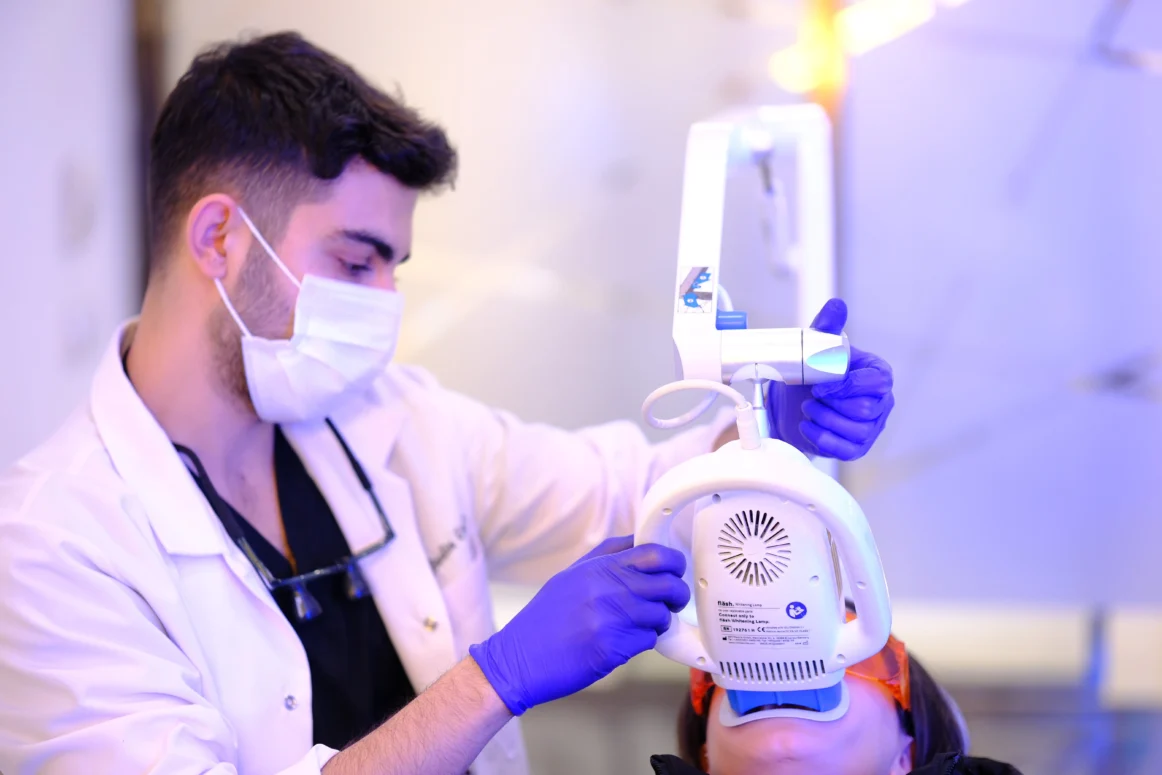The Truth About Whitening Safety
Teeth whitening is one of the most common cosmetic dentistry procedures worldwide. It improves the appearance of teeth, increases confidence, and produces a brighter smile. Many seek whitening procedures to eliminate stains from food, drinks, and aging. However, despite its benefits, there are still questions about its safety. Most teeth whitening methods are safe if used correctly. However, overusing them or applying them improperly can cause problems. These issues may include tooth sensitivity and enamel damage [1].
But is teeth whitening truly safe for everyone? What potential risks should you be aware of?
This article examines the safety of teeth whitening treatments. It covers possible side effects and tips for keeping a healthy, white smile. We will also discuss how to reduce risks and pick the safest whitening option for you.
What is Teeth Whitening?
Teeth whitening is a method that makes teeth lighter. It uses bleaching agents or other whitening products. The treatment removes stains from food, drinks, smoking, and aging. Whitening can brighten your smile, but it’s key to know how it affects your oral health.
Teeth whitening has various methods. Each one has different effectiveness and safety levels:
Professional In-Office Whitening:
Performed by a dentist using high-concentration bleaching agents.
Produces fast and noticeable results.
Often includes light-activated treatments for enhanced whitening.
Considered the safest method due to professional supervision.
At-Home Whitening Kits:
Includes whitening trays, strips, or gels available over the counter or through a dentist.
Takes longer to show results compared to in-office treatments.
Some kits may contain strong bleaching agents that, if misused, can harm teeth and gums.
Whitening Toothpaste and Mouthwash:
Contains mild abrasives and small amounts of peroxide to remove surface stains.
Less effective for deep stains but good for maintenance.
Generally safe for daily use.
Natural Remedies:
Baking soda, activated charcoal, and hydrogen peroxide are popular home remedies.
Effectiveness varies, and overuse can damage enamel.
Is teeth whitening safe?
Teeth whitening is generally safe when done correctly. Dentists use specific amounts of whitening agents in their treatments, which helps reduce the chance of damage. Over-the-counter products are also safe if used as directed. But using them too much or the wrong way can lead to issues, such as sensitivity and gum irritation [2].
What are the risks of teeth whitening?
While whitening is safe for most people, some risks exist, including:
- Tooth Sensitivity: Whitening agents can make teeth sensitive to hot and cold temperatures.
- Gum Irritation: Strong bleaching agents may cause temporary irritation or discomfort.
- Enamel Damage: Overusing whitening products can weaken enamel, increasing the risk of cavities.
Uneven Whitening: Dental work, such as fillings or crowns, won’t whiten like natural teeth. It can cause uneven results. - Overuse Issues: Frequent use of strong whitening products can lead to permanent enamel erosion.
Are you concerned about the risks associated with teeth whitening? At Dentspa Clinic, we’re committed to providing effective treatments with minimal risks.
Ready to transform your smile? Click here to chat with our friendly experts on WhatsApp today.
How to Whiten Teeth Safely
To achieve a brighter smile safely, follow these tips:
- Consult a Dentist: A dentist can recommend the best whitening method based on oral health.
- Use Professional Treatments: In-office whitening is safer and more effective than home remedies.
- Follow Instructions: Always use over-the-counter whitening products as directed.
- Limit Whitening Frequency: Avoid excessive whitening to protect enamel.
- Keep Your Mouth Healthy: Brush twice daily, floss, and avoid foods and drinks that stain.
- Choose a quality dental clinic: An expert can make a big difference in your teeth whitening outcome. So, don’t settle for less when it comes to teeth whitening. Choose the best professionals. At Dentaspa Clinic, Turkey, our dentists are highly skilled and world-renowned.
Are you ready to explore your options? Click here to chat with our experts on WhatsApp!
Warning signs of Unsafe Whitening
If you experience any of these issues after whitening, seek dental advice:
- Severe tooth pain or prolonged sensitivity.
- Swollen, red, or bleeding gums.
- White spots or uneven color on teeth.
- Loose or weakened teeth.
Why You Should Have Your Teeth Whitening At Dentspa, Turkey?
Are you concerned about issues surrounding teeth whitening? Then, you should book a consultation for a proper evaluation at Dentspa Clinic in Turkey.
Thanks to our expertise, DentSpa offers more than dental care. It provides the best treatments tailored to your needs. DentSpa is proud to have been recognized as the Best Clinic in Dentistry in Europe at the European Awards in Medicine 2024. It is also a top dental tourism clinic in Turkey, trusted by over 50,000 international guests for its high-quality, affordable care.
Why settle for less when you can receive world-class treatment and also explore the beauty of Istanbul? With DentSpa, you’ll get your dream smile. You’ll also enjoy a unique dental tourism experience, all under the care of top experts.
Frequently asked questions
Can smoking affect teeth whitening results?
Smoking stains teeth and makes whitening treatments less effective. This causes quicker discoloration.
Can teeth whitening be reversed if it causes issues?
While whitening effects fade over time, some damage, like enamel erosion, cannot be reversed. Seeking professional guidance can help manage any adverse effects.
What are the indicators of unsafe teeth whitening, and when should I seek assistance?
Signs of hazardous whitening include persistent sensitivity, gum irritation, or enamel damage. If you experience these symptoms, consult your dentist immediately.
Is teeth whitening common?
Yes, teeth whitening is a widely used cosmetic procedure with a high success rate when done safely.
Can teeth whitening damage my enamel?
No, when done correctly, teeth whitening does not permanently damage enamel. However, too much bleach or high concentrations can weaken enamel over time.
















 70%
70% 

